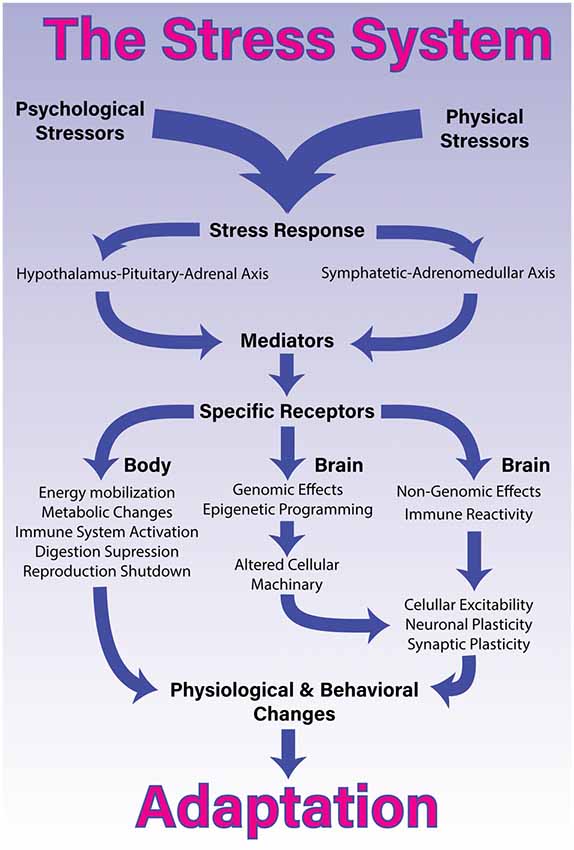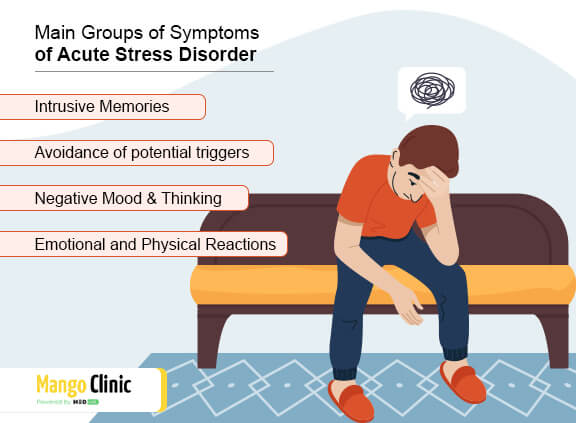Acute Stress Disorder Overview

An Acute Stress Disorder overview can be helpful for someone looking to get a general understanding of the condition. Symptoms of ASD include prolonged mental and physical distress. They may include feelings of depression, apathy, and a lack of hope. Some people may experience dissociative symptoms, such as a sense of being detached from their body and thoughts, or avoidance symptoms, such as avoiding social situations or thinking about a traumatic event.
Acute Stress Disorder affects every aspect of a person's life. In some cases, the depressive mood associated with ASD can interfere with romantic relationships with others. Acute Stress Disorder also can lead to avoidance behaviors, such as avoiding social situations and work. A person may become irritable and impulsive, which can further damage relationships. In severe cases, substance abuse may occur. While many people who experience a traumatic event will eventually recover, some problems with this type of addiction may persist for years.
The first article on Acute Stress Disorder explained what it is and how it develops. This disorder has many underlying causes and can result in various negative outcomes, but there are many treatments. In many cases, there is no cure for ASD. However, if you suffer from ASD, your doctor can offer you some solutions to help you cope with your symptoms. Acute Stress Disorder can be a lifelong condition, and treatment is based on the severity of the illness.
In order to learn more about Acute Stress Disorder, it's important to understand how it is diagnosed. In the DSM-IV, acute stress disorder was identified as a new diagnosis in 1994. It was intended to facilitate healthcare services for trauma patients at a very early stage. By identifying signs of the condition, it can be prevented and treated as early as possible. Acute Stress Disorder is often a lifelong disorder, so seeking professional help is recommended.
Acute Stress Disorder is a condition that can occur within four weeks of a traumatic event. Symptoms of acute stress disorder include intense fear, anxiety, and dissociative symptoms. The person may also exhibit avoidant behavior. Acute stress disorder is also a risk factor for post-traumatic stress disorder. Genetics, age, and family history can increase the risk of PTSD. Acute stress disorder can affect psychological functioning and lead to depression.

Acute stress disorder was first described in 1994 as a new mental disorder in the Diagnostic and Statistical Manual of Mental Disorders, Fourth Edition. DSM-IV was added to the DSM as a new diagnosis for the care of trauma patients. It was not initially covered by insurance because the disease was in its early stages. But a new diagnosis was made, and its treatment has since been specified in the DSM-IV.
Beyond the diagnosis, acute stress disorder is a symptom of a traumatic event. A person may experience symptoms for a period of 3 days to a month. These symptoms may include depression, anxiety, or other physical symptoms. Acute stress disorder is also diagnosed as a symptom of post-traumatic stress disorder. It must be examined by a medical professional to determine whether a person has it. Additionally, a patient with this disorder should immediately seek treatment at https://phuketbulletin.co.th/.
Acute stress disorder is a psychological disorder in which people experience intrusive thoughts, disturbing dreams, and general sleep disturbance. These symptoms may be related to a traumatic event in the past or may be an atypical reaction. Depending on the severity of the condition, a person may lose a sense of control. Acute stress disorder can have devastating effects on a person. It is extremely important to seek help as soon as possible.
Acute stress disorder was first described in 1994 in the Diagnostic and Statistical Manual of Mental Disorders (DSM-IV). DSM-IV is the most widely used classification system for mental disorders. DSM-IV includes a diagnosis of acute stress disorder. Acute stress disorder is a common symptom of a traumatic event. There are several treatments for acute stress disorder. If you suffer from this disorder, you should see a doctor as soon as possible.


